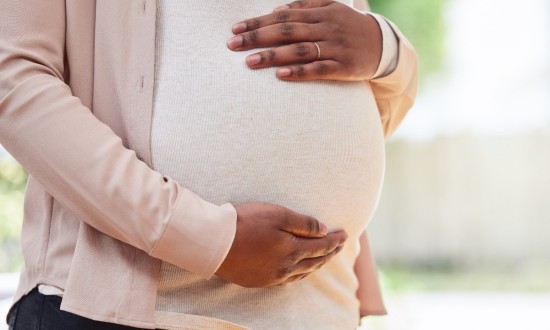Pregnant women diagnosed with cancer don’t get the emotional support they need due to research gap
Support for pregnant women diagnosed with cancer is limited because of insufficient research into the specific emotional consequences and needs associated with a diagnosis at this time, according to a new report from the University of Surrey.

Researchers have also found that pregnant women diagnosed with cancer often delay seeking medical help because they believe their symptoms are due to natural changes in their body.
In the most comprehensive study of its kind, researchers from Surrey, in collaboration with the charity Mummy’s Star, reviewed causes of psychosocial issues (distress, depression, and anxiety) affecting pregnant women diagnosed with cancer and what supportive care is available to them and their partners.
Dr Jenny Harris, Senior Lecturer in Cancer Care at the University of Surrey, said:
“Despite the increasing incidence of cancer during pregnancy, the psycho-social issues that women and their partners experience is an under researched area. This makes it extremely difficult to develop emotional care packages to support these women and their families with adjusting to such a difficult diagnosis, and to limit the long-term negative impact.
“There is never a good time to be diagnosed with cancer but a diagnosis in and around pregnancy is particularly challenging. The distress women experience during this time is immense due to the difficult decisions and worry they encounter. We need to do more to help pregnant women with cancer, support their decision-making and ensure they get the emotional support they need to make a full recovery.”
Examining previous studies in this area, researchers identified concerns and distress experienced by many women regarding cancer treatments, including how it could impact their ability to breastfeed, and worries about bonding with their infant. The research team found that, women described feelings of anxiety, loss, guilt and disrupted expectations when discussing this topic. There was some evidence that partners and/or wider family tried to influence their decision-making, such as to prioritise their own life rather than their foetus or future fertility and this might heighten distress.
In addition, researchers reviewed published studies and found there are no evidence-based supportive care interventions for women or families and a lack of educational programmes tailored to upskill health care professionals.
Pete Wallroth CEO/Founder of Mummy’s Star the UK and Ireland’s only charity dedicated to women and families diagnosed with cancer during pregnancy said:
“Cancer and Pregnancy is an incredibly complex and underexplored area, especially looking at the real time experiences of the families affected. The publication of this piece of work is key progress in further opening up the conversation to help ultimately ensure families are adequately supported and the challenges are seen beyond the more tangible impacts of treatments and surgery. We are incredible grateful to the whole team involved and their expertise.”
The study has been published in BMJ Open
Share what you've read?
Featured Academics
Media Contacts
External Communications and PR team
Phone: +44 (0)1483 684380 / 688914 / 684378
Email: mediarelations@surrey.ac.uk
Out of hours: +44 (0)7773 479911




